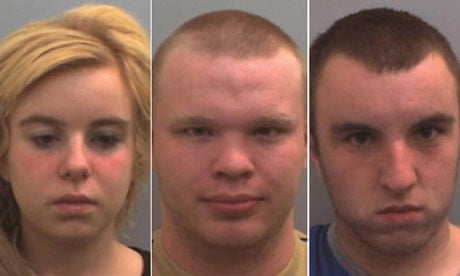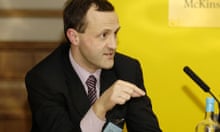Gemma Hayter died naked and alone after being tortured and brutalised. Her killers were known to her. More than that, to Gemma, a 27-year-old learning disabled woman, these people were her friends. Most people reading the account of the trial will be sickened and wonder where the culture of disability abuse has sprung from. As the EHRC publishes its findings that disability hate crime is increasing and Scope reports that discrimination and abuse against disabled people in the streets has risen in the last year, the times are changing for the worse.
For disabled people and those of us who love them this change is very worrying indeed.
As with the recent allegations about the systemic abuse of disabled people in residential hospitals such as Winterbourne View, the problem seems beyond our ability to compute.
We are appalled and recognise nothing in the actions of these sadistic people that dovetails with our frame of reference so we reject it as the actions of a few. Actions like these, however, don't begin with death or violence or torture. The genesis of this behaviour starts in the smallest and most preventable way.
It begins with verbal abuse.
The fact is that this behaviour, which should be abhorrent in a civilised society, is in fact on the increase. The catalogue of abuse meted out against disabled people is routine and forms a spectrum. The extreme end point is torture and death but the birth of dehumanising bigotry is always verbal abuse.
We can't allow this to continue. We can't collectively challenge and legislate against racism, anti-semitism and homophobia but allow disablism to present itself unchallenged.
Because it is in the language that we use everyday that seeds for disablism are sown and disabled people reap the harvest as targeted abuse.
As we turn away we can no longer see the words written about sadistic killings of innocent people but we can hear the language of discrimination at every turn.
A "retard" joke here or a "window licker" comment there feeds the bigots and more importantly, more worryingly, it sets a precedent. It tells us that disabled people are worthless.
Gemma wasn't worthless to me. Neither was David Askew, or Fiona Pilkington or her daughter Francecca. I worry all the time what the future means for disabled people like my daughter who will remain a five-year-old for life. I know abuse will be a factor in her life. As a parent you worry about the slim possibility of harm coming to your child. As the parent of a disabled child the question isn't if but when .
Disability abuse, whether dressed up as satire by some comics and TV presenters making insulting and tenuous epithetsfor stupidity and ignorance or straightforward hatred screamed at you on the street, needs to be challenged every single day. The vogue use of "retard" by unthinking or uncaring celebrities ensures that their millions of fans have a new word to use with their friends.
An excuse of free speech doesn't work here either. Hate speech isn't free speech when it locks others into a prison of stereotyping and perpetrates abuse.
We can't stamp out bigotry entirely but we can remove the oxygen that feeds it. We can challenge the support networks which promote it and we can demand that others do the same. It's something we can all do, and it's something that a civilised society should do, because irrespective of how often or how determinedly we turn our heads from the inconvenient truth, all hate crime begins with verbal abuse.




